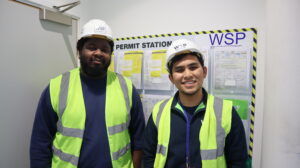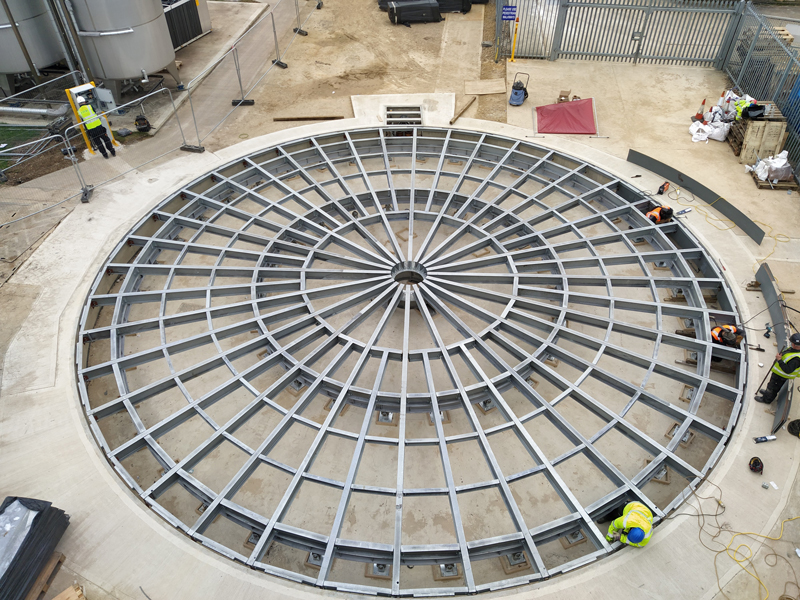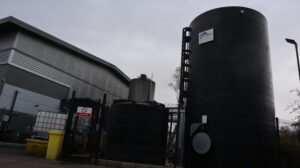
Meet the Graduates
Catching up with our Graduate Engineers As part of WSP Engineering’s vision and strategic business plan aimed at fostering the
Is Phased Construction right for your next project?

Construction and business improvement projects can take months or even years to complete. With the competition and challenges businesses operating in the FMCG market face, remaining at optimal operational capacity has never been more critical.
This is where the process of phased construction comes in, providing a way for businesses to continue to operate and bring in revenue whilst works are underway.
In an ideal world, most businesses would prefer for a construction or business improvement project to be completed in its entirety. However, this is not always possible or practical due to the potential loss of income and lack of funding. This is where a phased construction approach comes in.
Phased construction is where a project is broken down into smaller projects, and phases are carried out over months or even years. It is a preferred approach to a project where there could be financial restrictions, a risk to income or high levels of complexity.
One of the main advantages is allowing your business to remain operational and continue generating income whilst work is taking place.
Phased construction can also be highly advantageous when financing is not immediately available to complete the project in its entirety.
Breaking down the project into a series of phases and a smaller set of costs can allow time for additional funding to be approved or acquired.
At WSP Engineering, we evaluate and carry out all our projects through our CBPR process. Our experienced engineers and project managers will assess every project from multiple angles and provide proposals with transparent timescales, costs and scope of work.
A project that uses a phased construction approach requires a master and phased project plan.
The master plan will look at the project as a whole and provide the timescales, cost and scope of work for the entire project.
The phased project plan will encompass the finer details of each project phase.
It requires meticulous planning, especially in the design and costing phase. Communication and collaboration with the client are vital to ensuring work is carried out on time, and their business remains operational.
Understanding the order in which works need to be carried out and what operational measures need to be put in place is crucial to delivering the project on time.
We are experts in end-to-end project management, from planning works and managing contractors to engineering equipment and health and safety compliance.
The principal risks of phased construction are as follows;
All of these risks can be overcome and mitigated through effective planning and communication.
Partnering with the right project team and contractors who can collaborate, communicate, plan and manage the project with you is crucial to its success.
We pride ourselves on having the best people with real-world knowledge and experience that understand your project and operational needs.
Some of the phased construction disadvantages include
We have an established track record of delivering innovative projects in industry-leading timescales.
Our team can assess your project requirements, provide multiple solutions, and advise on the pros and cons of each approach, including if a phased construction approach is suitable for your project.
To learn more about what we do or discuss your next project with us, follow the links below.
More Articles

Catching up with our Graduate Engineers As part of WSP Engineering’s vision and strategic business plan aimed at fostering the

Jigsaw Foods Wastewater Treatment Project Conclusion We are pleased to announce the completion and conclusion of the wastewater treatment project

Double Championship Wins for Zac Champney WSP Engineering backed racing driver, Zac Champney concluded his remarkable 2023 season in triumphant
WSP Newsletter Sign Up
| Cookie | Duration | Description |
|---|---|---|
| cookielawinfo-checkbox-analytics | 11 months | This cookie is set by GDPR Cookie Consent plugin. The cookie is used to store the user consent for the cookies in the category "Analytics". |
| cookielawinfo-checkbox-functional | 11 months | The cookie is set by GDPR cookie consent to record the user consent for the cookies in the category "Functional". |
| cookielawinfo-checkbox-necessary | 11 months | This cookie is set by GDPR Cookie Consent plugin. The cookies is used to store the user consent for the cookies in the category "Necessary". |
| cookielawinfo-checkbox-others | 11 months | This cookie is set by GDPR Cookie Consent plugin. The cookie is used to store the user consent for the cookies in the category "Other. |
| cookielawinfo-checkbox-performance | 11 months | This cookie is set by GDPR Cookie Consent plugin. The cookie is used to store the user consent for the cookies in the category "Performance". |
| viewed_cookie_policy | 11 months | The cookie is set by the GDPR Cookie Consent plugin and is used to store whether or not user has consented to the use of cookies. It does not store any personal data. |